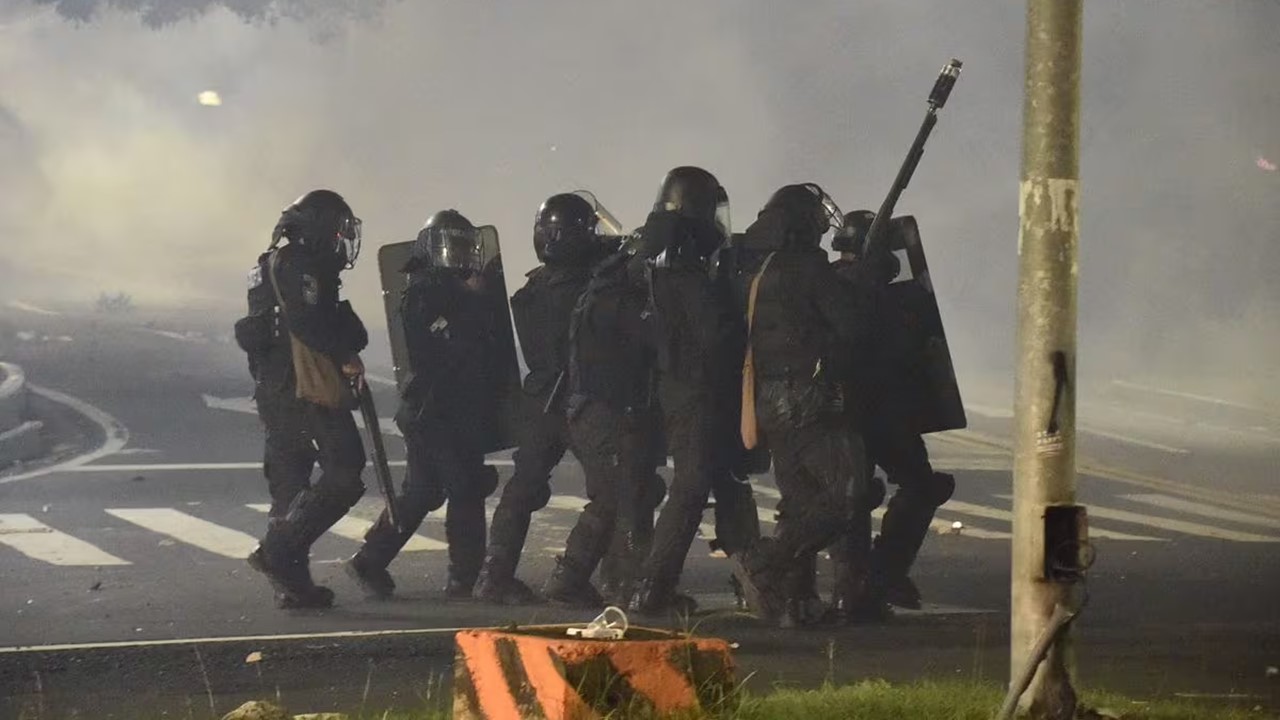Can foreigners participate in protests?

The short answer is obvious: “Yes” writes Rodrigo Noriega in La Prensa. The right to protest peacefully is established by the main human rights instruments such as the Universal Declaration of Human Rights, the International Covenant on Civil and Political Rights, and the American Convention on Human Rights, among other binding legal norms that protect human rights internationally.
In Panama, article 20 of the Political Constitution says: “Panamanians and foreigners are equal before the Law, but the Law may, for reasons of work, health, morality, public safety, and national economy, subordinate to special conditions or deny the exercise of certain activities to foreigners in general. Likewise, the Law or the authorities, depending on the circumstances, may take measures that exclusively affect the nationals of certain countries in the event of war or in accordance with what is established in international treaties.”
The norm cited is the legal umbrella called the Principle of Equality. The State could not do well to repress or particularly punish foreigners for participating in a “peaceful” manner in any protests or public expressions of repudiation of decisions of the Panamanian State that harm human rights, or affect the assets of the State itself.
The immigration regime
The immigration regulations of the Panamanian State, mainly Decree Law 3 of 2008, which established the National Immigration Service, regulate specific administrative powers with respect to resident foreigners, refugees, tourists, or undocumented immigrants in the Republic of Panama.
Thus article 26 says:
“Refugees, asylees or stateless persons will have the same rights as temporary residents, including the right to work, subject to current labor regulations, the obligation to pay taxes and social security contributions under the same conditions as nationals, as well as the payment of immigration services… ”
It would be a great nonsense and a major contradiction if one of the foreigners mentioned in this article has the obligation to pay taxes, social security, and surely other taxes, but does not have the right to protest against the misuse of said taxes, tributes or quotas. social security, as well as speaking out against behaviors that he perceives affect his adoptive home, even temporarily.
On the other hand, it is evident that immigration legislation has extremely arbitrary aspects, such as what is established in Article 31 of Decree-Law 3 of 2008: “The Director General of the National Immigration Service may cancel the permanence or residence in the national territory. , to the non-resident foreigner, temporary or permanent resident, in any of its immigration subcategories, for the following reasons:
Use the sole purpose of marriage with a national, to obtain residence.
Attacking national security, public order, morality, or public health, or violating the rights and freedoms of people.
In the case of permanent residents, be absent from the national territory for more than two years, unless such absence is justified and authorized by the Director of the National Immigration Service.
Carry out activities incompatible with those that served as the basis for granting the non-resident, temporary, or permanent resident visa or permit.
Present false statements and/or fraudulent or altered documentation.
Offer, by oneself or through an intermediary, any type of promise or remuneration, or exert any type of pressure aimed at altering the will of officials of the National Immigration Service or diplomatic or consular agents, with the purpose of obtaining the visa or the respective permit.
Having been convicted of committing an intentional crime or tax fraud.
Cease the causes that gave rise to the authorization of the visa or the respective permit.
“Any other cause established by law or regulations.”
Article 31 and others of similar tenor in immigration legislation lend themselves to abuse and excessive discretion by officials. Another example of what has been said is Article 71 of the same Law, which states the following:
Article 71. “The National Immigration Service may expel a foreigner who:
Advocates for a crime or incite racial, religious, cultural, or political hatred.
Be a threat to collective security, health, or public order.
Has been convicted of an intentional crime, after having served his sentence.
Has been deported and reenters the country irregularly.
It is obvious that a foreigner who is a known member of a gang is not the same as another who is dismayed by the situation in the country.
In the recent past, immigration legislation was used to expel from Panama Spanish citizens Francisco (Paco) Gómez Nadal and Pilar Chato who were repatriated to Spain in February 2011, for documenting the government’s brutal repression against mining protests. of then president Ricardo Martinelli.
The action of the State to differentiate, diminish, or marginalize foreigners in their rights does not correspond to a democratic and modern State. That is not the behavior that other countries such as Canada, Spain, the United States, and Ireland, for example, have had with the Panamanian protesters who in the main cities of these nations have protested in a very creative and supportive way against the current government and its contract law 406.





